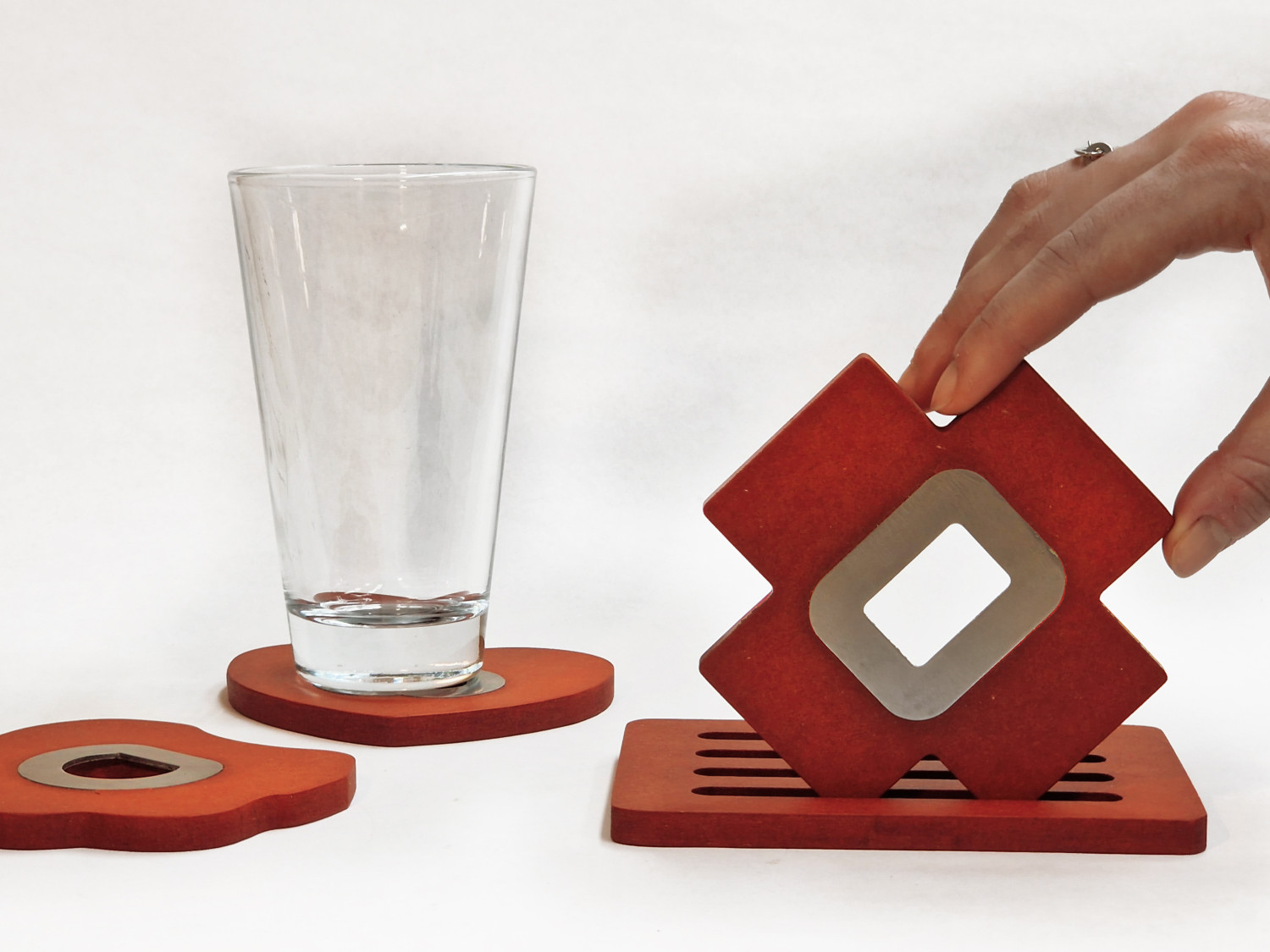Maria Levitsky and Daniil Chechin share their inspiring maker journey, from early crafting to founding Prostor Studio. Their passion for furniture design is combined with a strong focus on sustainability and multifunctionality. In this interview, they tell us how the Distributed Design Residency played a key role in the development of their first market-ready product, the challenges they had to overcome and their exciting plans for the future. An insightful conversation that emphasises the courage to change and self-reflection.
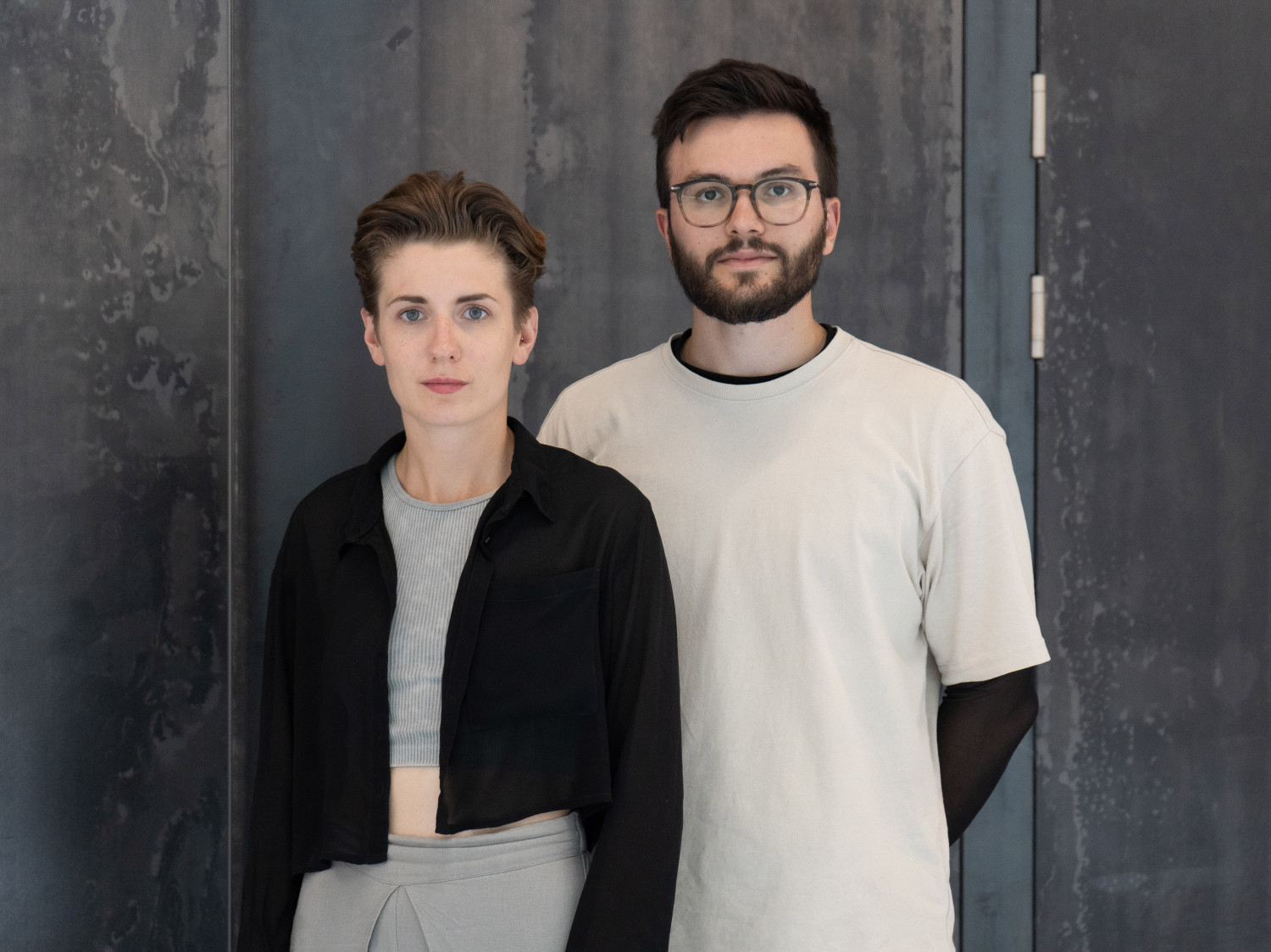
What makes you makers? And what or who inspired you to start?
Daniil: I come from a post-Soviet country. People there have always made a lot of things with their own hands. I also played with tools as a child. My father and brother taught me a lot back then and showed me how to repair things. I see myself as a maker because I love building and designing things and always trying out new technologies.
Eight years ago, Maria and I realised a project with a designer where we had the opportunity to test a 3D printer. And I was totally surprised at how easy it was to produce objects with it. That motivated me to continue.
Maria: I studied architecture because I always wanted my ideas to become reality. And during this joint project with Daniil, I realised how great it is to be able to experiment with things like this.
When we moved to Vienna seven years ago, Daniil took me to Happylab and showed me what was possible here. So it's actually him who inspired me.
Please tell us a bit about your background.
Daniil: Like Maria, I'm an architect. I did my Bachelor's degree here in Vienna at the TU. Now I'm doing a Master's programme in Distributed Design Innovation at the Institute for Advanced Architecture of Catalonia. It's all about a sustainable and future-proof approach to design and production.
I also work part-time as a 3D designer. I have been working with 3D for 10 years, even when I was still at school in Moscow. These skills have helped me a lot in designing prototypes here at Happylab.
Maria: For us as architects, it is perhaps a little easier than for other people who have no prior knowledge. We all learnt 3D programmes and 2D drawing during our studies. If you want to be a maker, you have to know your way around machines on the one hand and software on the other. We already had these skills. That was a big advantage.
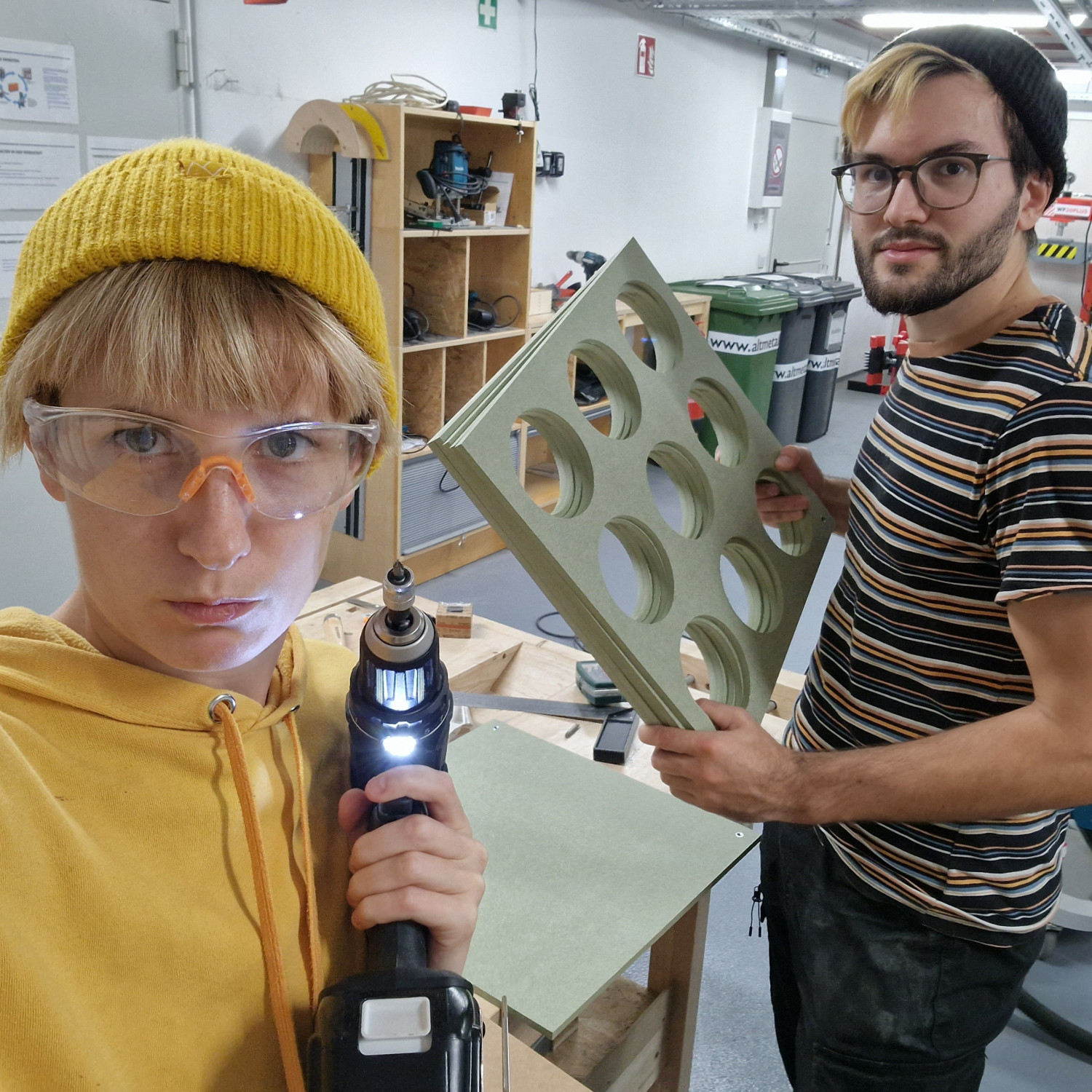
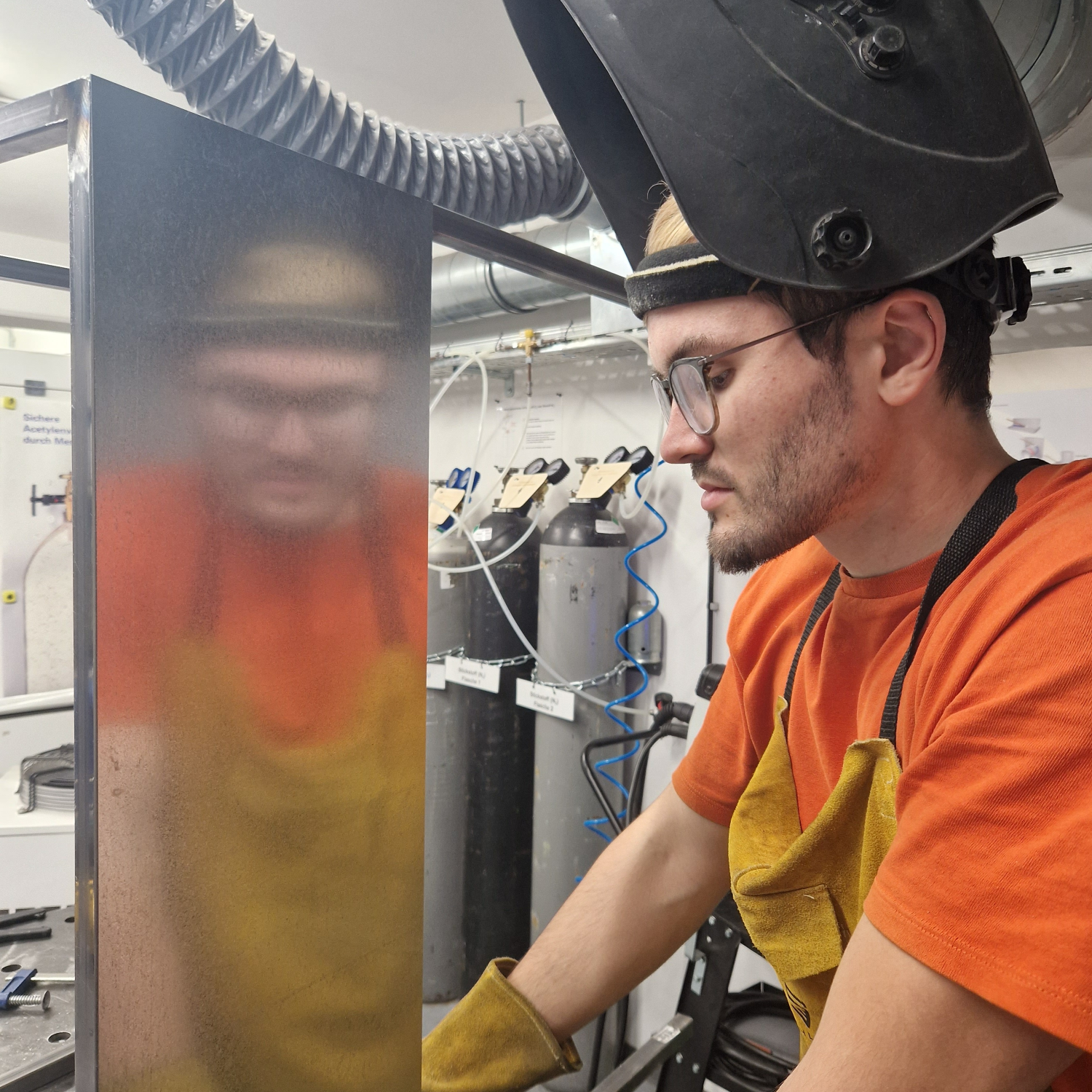

How long have you been working at Happylab and how has membership influenced your maker journey?
Daniil: I discovered Happylab in 2018. What impresses me the most is how much you can learn from other members. It's a great community and the dialogue between members works really well. And the support from the Happylab team is just great - especially Lukas, Vjara and Joanna. They are always there and open to ideas.
Maria: I joined in 2021. We experimented a lot at Happylab because there are simply so many possibilities here. You won't find that anywhere else in Vienna. We are really grateful for that.
How did the idea for your start-up Prostor Studio come about?
Maria: We had long harboured the dream of having our own design studio at some point. At first, we did a lot of things for ourselves at Happylab. When we took part in the Distributed Design Residency 2022/23, we had the opportunity to experiment a lot. That was the first time we designed a product that was to go into series production. At the time, we also focussed very strongly on the circular economy and looked at the design process from different perspectives. That convinced us to take a further step towards professionalisation.
Daniil: There are a lot of projects on the Distributed Design Portal that deal with the topic of sustainability. So it was very important to us that we realise a sustainable idea in the residency. We also attended a workshop with Therese Balslev from the Danish Design Center and saw that sustainable design has many aspects. That really influenced our approach to design.
Maria: At the Maker Faire Vienna in June 2023, we presented ourselves as Prostor Studio for the first time, created our Instagram presence, printed business cards and so on. Incidentally, our name stands for "wide space" and symbolises the freedom of creative thinking.
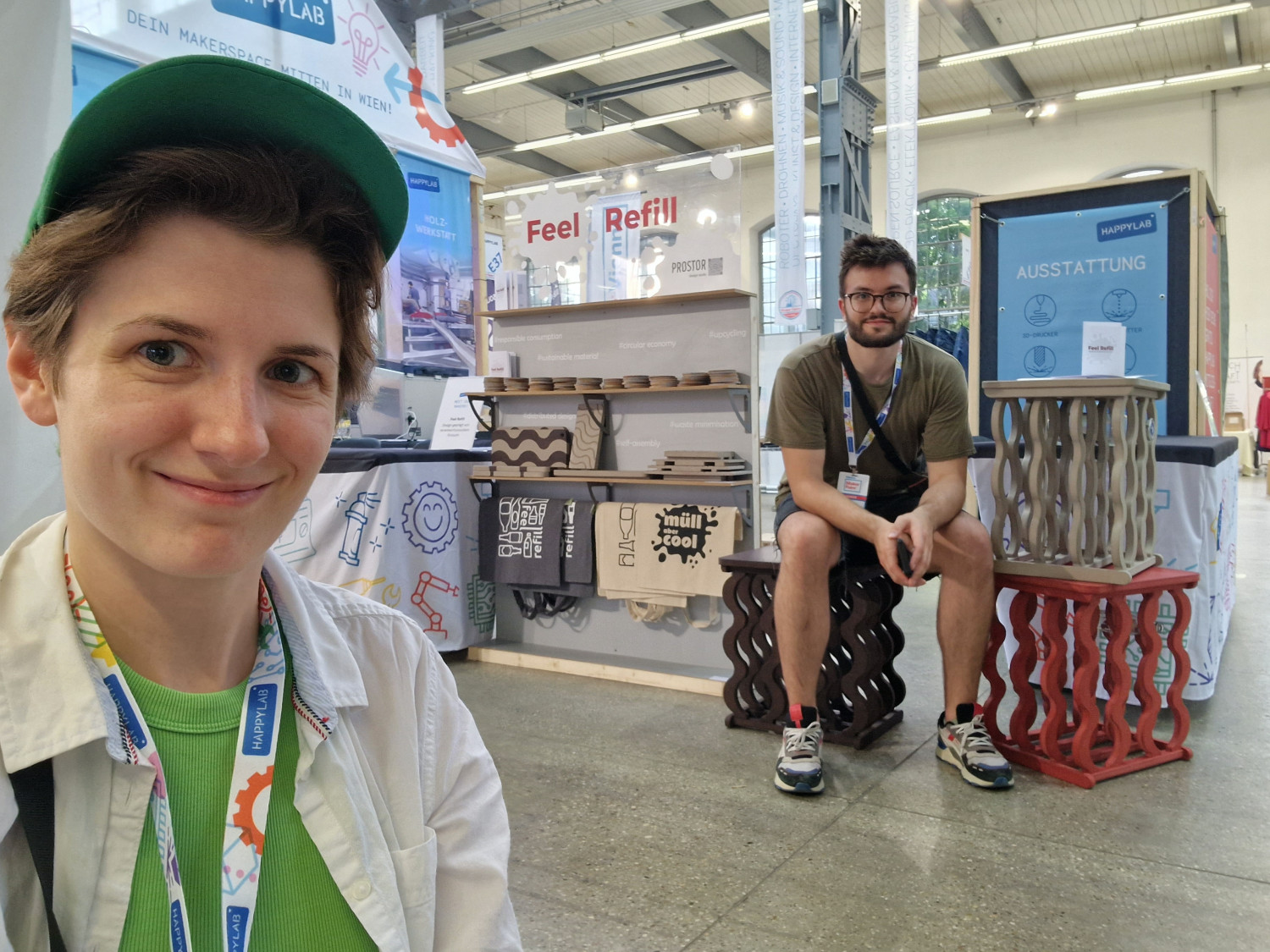

What projects are you realising? What are you particularly interested in?
Daniil: We mainly do furniture and spatial design. Sustainability and multifunctionality are very important to us. We try to realise these aspects in all our projects.
Maria: At the Distributed Design Residency, we developed a piece of furniture called Feel Refill. It's a multifunctional piece that doubles as a stool, side table and shelf for deposit bottles. We have a very small kitchen ourselves and didn't know where to store our empty bottles. Many households have this problem and we wanted to develop a solution. It comes in a flat pack and is easy to assemble.
Daniil: It's also designed in such a way that we hardly have to throw away any materials during production. Thanks to the waves, we can mill very precisely and there are virtually no residual materials. And when you no longer need the stool, you can upcycle the individual elements for new projects and turn them into decorative wall tiles, coasters or serving trays, for example.
Maria: We also won an architecture competition in the summer. Together with Mariia Samahala and Mykhailo Zhuk, who are currently taking part in the current Distributed Design Residency. We designed a food court for a music festival in Latvia. Our concept was to design the facades with panels that could be used to quickly build furniture during the festival. This allowed us to save space for storage during the rest of the year. Local materials were used, especially wood.

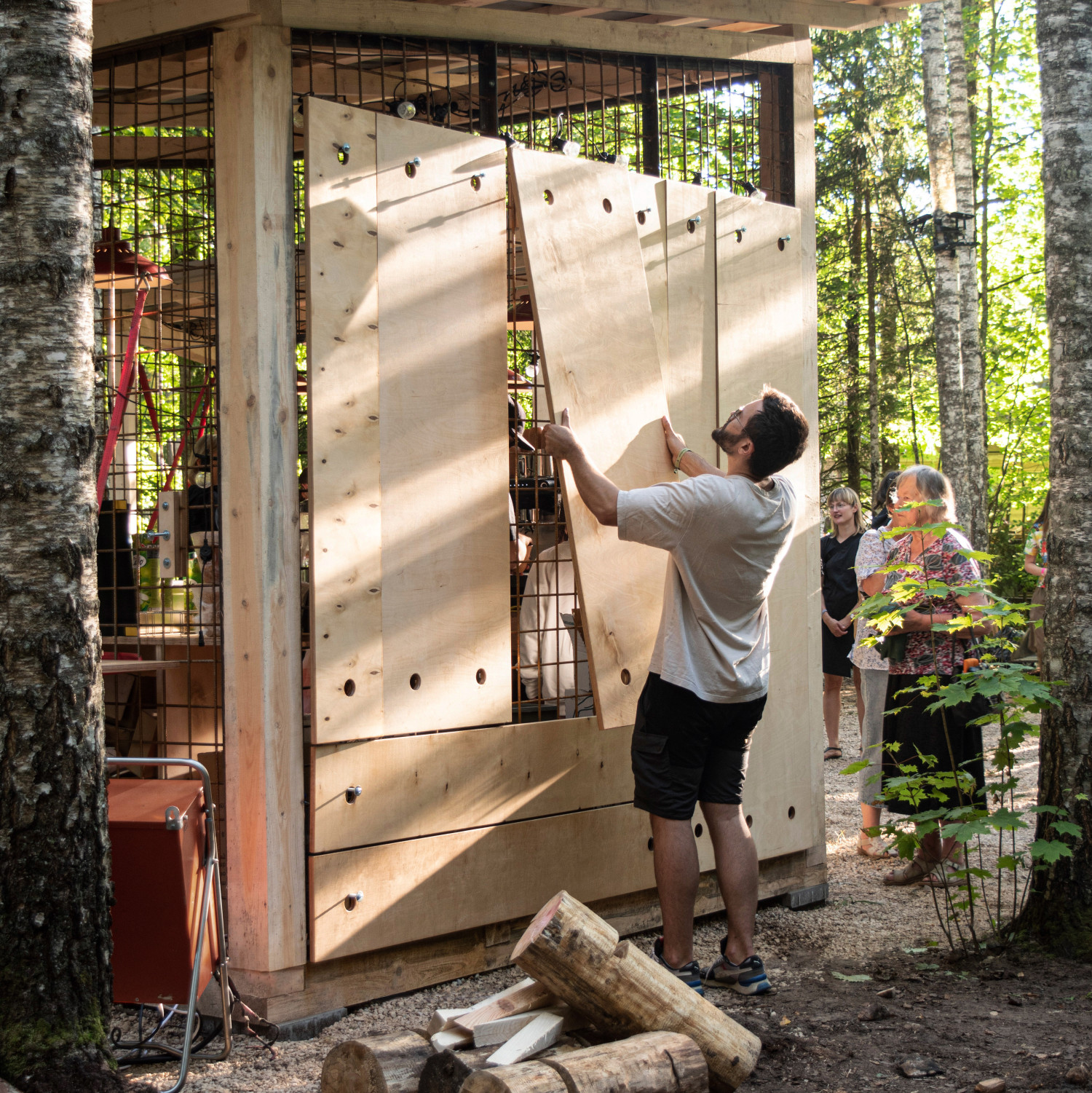
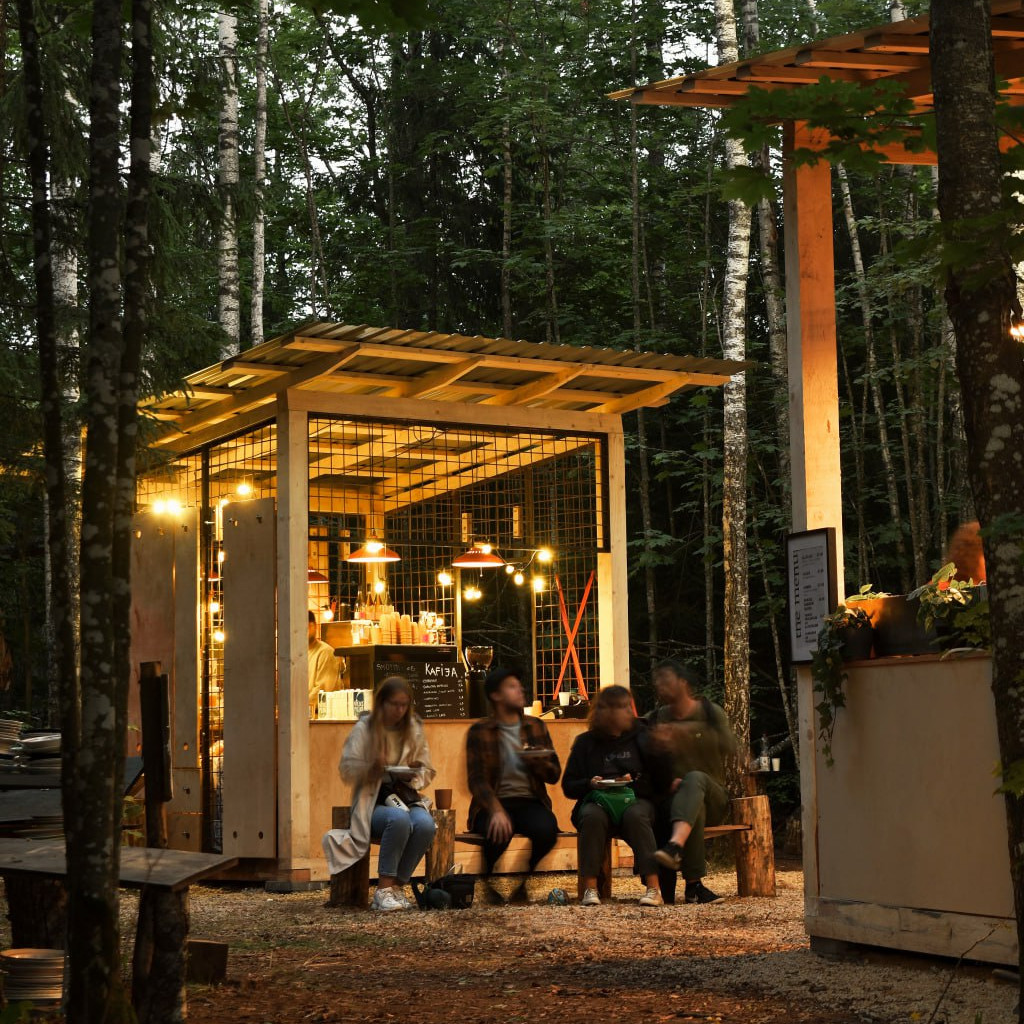
You also offer workshops - what are they?
Maria: Yes, we want to make design more inclusive. And we want to give people who have no knowledge of design and machines the opportunity to realise projects. Our first workshop will take place at Happylab at the end of January.
Daniil: We will be making a SipSip coaster & bottle opener set there, which the participants can design themselves. They will also learn about CNC and metal laser technology. This is how we show people how a Fab Lab concept works. That you can produce something relatively quickly and easily. We want to inspire!
Which tools and technologies do you use the most?
Daniil: Mostly the wood workshop and the CNC milling machine. But also the metal laser, laser cutter and cutting plotter. Less frequently the 3D printers.

How do you approach the planning of your projects?
Maria: We have regular feedback sessions. Once a year we have a meeting for our longer-term plans. We also always define our steps for the next 3 months. And every month we evaluate our progress.
Daniil: Of course, our work also involves many bureaucratic aspects: Accounting, marketing, planning for trade fairs, funding applications, etc. The actual design process probably accounts for just 20 per cent of the time. That's a pity.
What challenges do you face with your projects?
Maria: We are currently checking our logistics. A big challenge is to continue to produce sustainably if we want to go into series production. We are currently still doing everything ourselves in the Happylab. But if we want to scale projects, we have to think about other ways.
Daniil: In general, it's not easy for designers to find the right target group. Institutions such as the Distributed Design Platform that issue publications are very helpful here. We also have to be present at trade fairs, which means quite a large financial outlay - even if there are discounts for young designers. So the investment outlay is relatively high. But it has to be said: There are very good funding opportunities in Vienna for innovative projects.

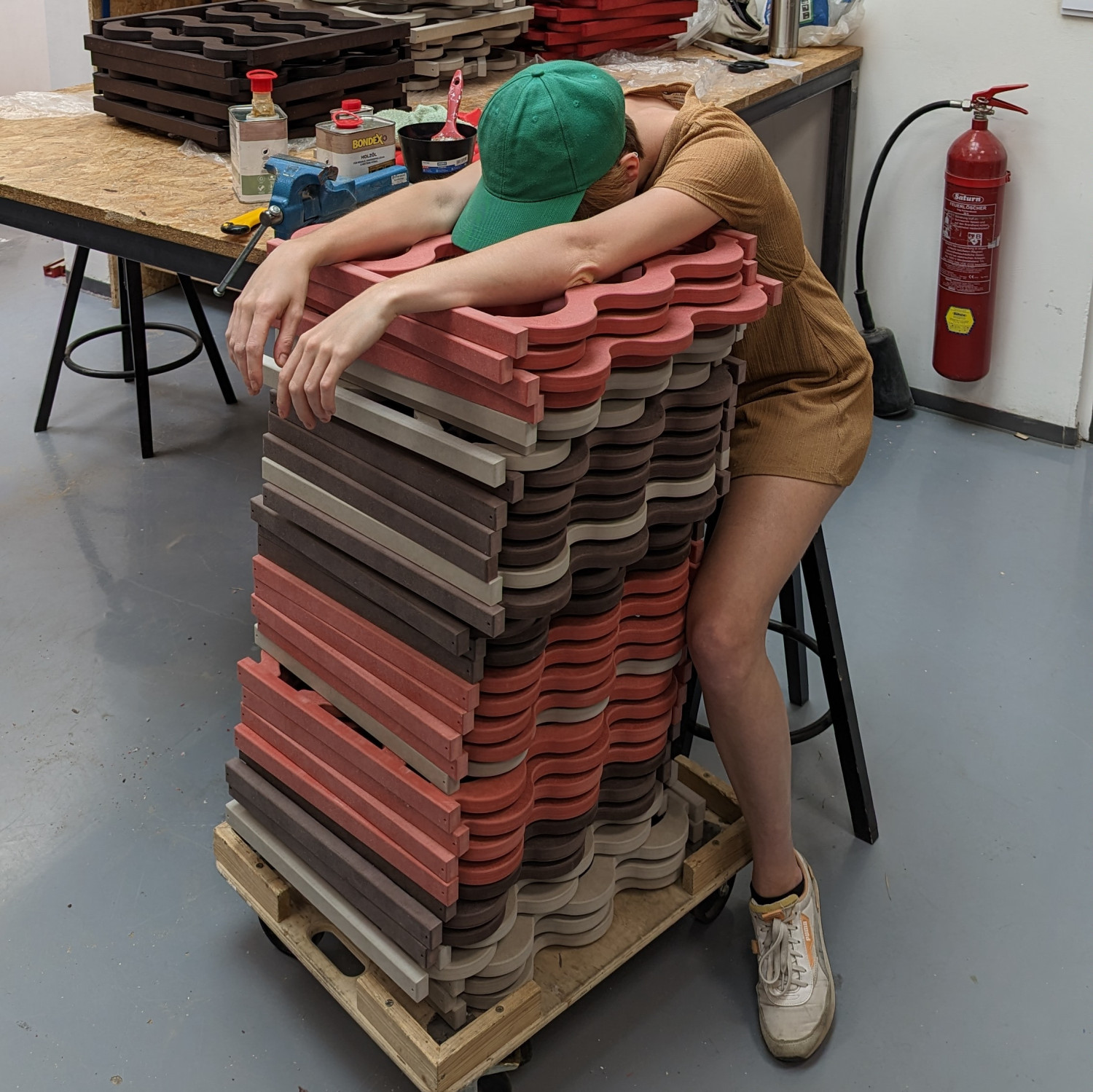
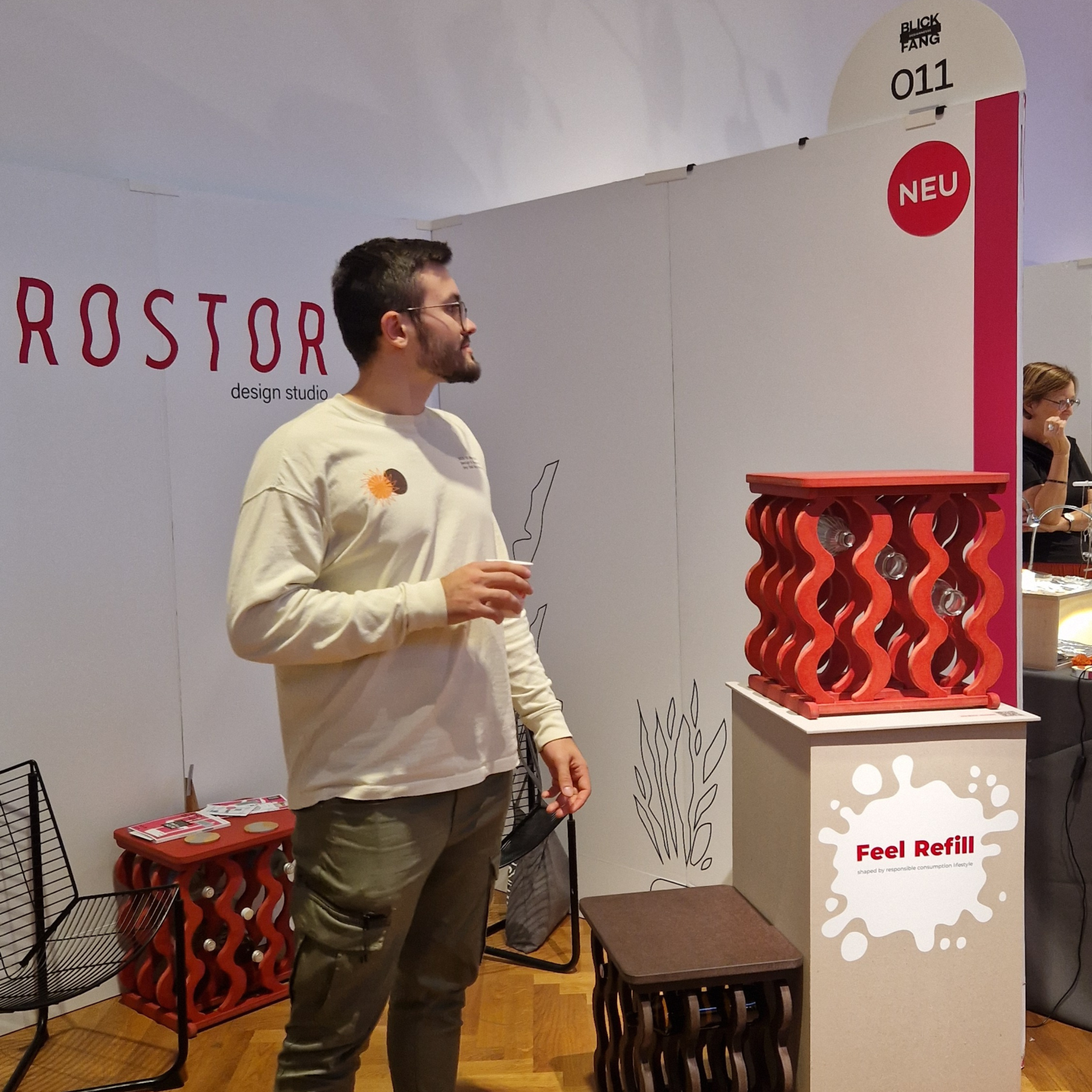
What advice would you give to people who want to start their own project?
Maria: You have to believe in yourself and not give up even when you have setbacks! Stay courageous and inspired. And it's important to clearly define your goals right from the start. Do you want to do your project as a hobby or make a living from it - because these are two completely different things and approaches.
Daniil: You also have to be self-critical and open to other opinions. Sometimes it's worth adapting your ideas!
Is there anyone in the design community who particularly inspires you?
Maria: I find people exciting who start small with their projects and then grow big. For me personally, for example, it's snorre Design, who make design objects out of old slatted frames. They also come from the field of architecture. It was inspiring for me to see that you can go a different way.
Daniil: For me, it's more the objects that inspire me, not necessarily the people behind them.
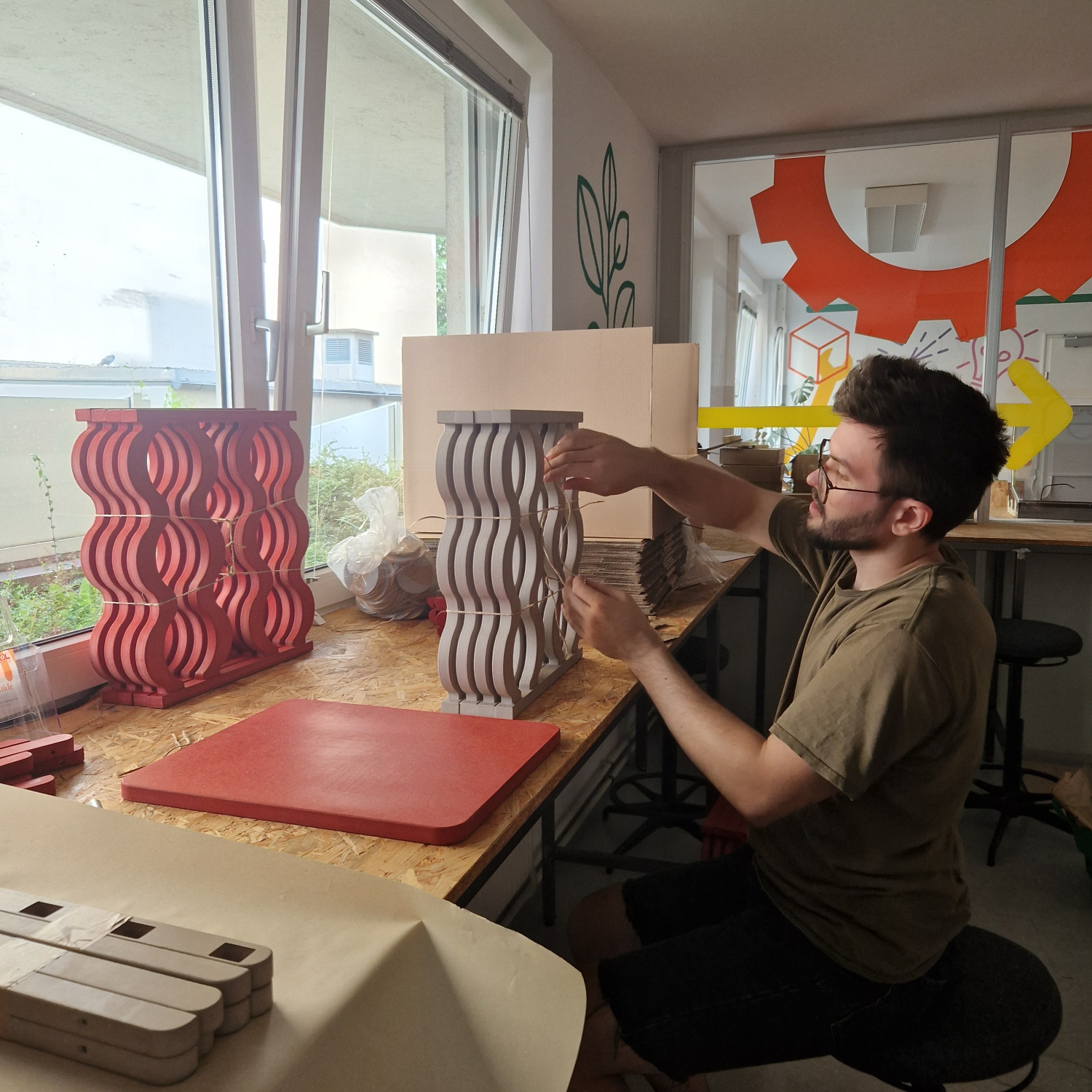

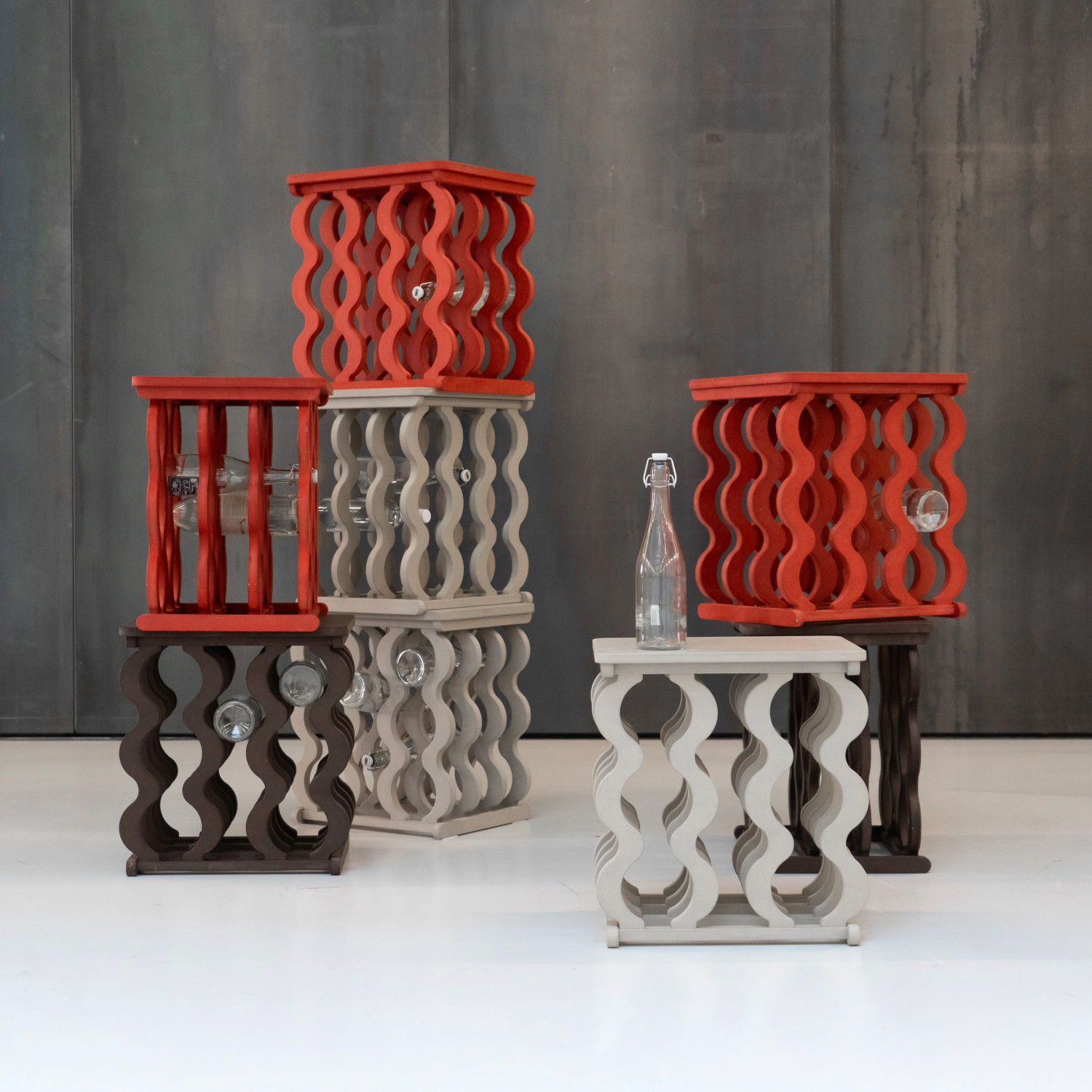
Where are you heading - what are your future plans?
Maria: We are currently developing our next product, which we would like to go into series production with. It will be a piece of furniture that also focuses on the recycling aspect, like Feel Refill. This project is about collecting paper waste.
Daniil: We would also like to go to another level and start an urban project. Urban Furniture - public furniture that has an integrated bottle recycling system with a deposit. We are currently working on various implementation concepts.
Thank you very much for talking to us and all the best for your future projects!

